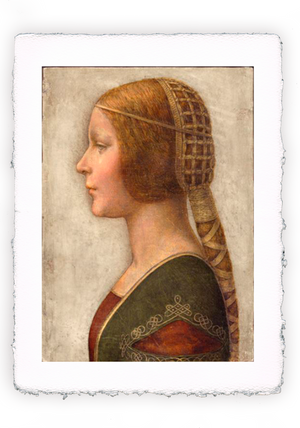
Constable: the sky in my soul

Two inherited mills
We are in Great Britain towards the end of the eighteenth century. Golding Constable is a wealthy grain merchant. It has two water mills and runs a transport business with horse-drawn barges.
He has three children, but the first has problems, he is retarded. So will the second, John, born on 11 June 1776 in a village in Suffolk, who will succeed him and take over the reins of the company.
John leaves school early and starts working in his father's business. It grows in the green and peaceful English countryside and love for nature and the landscape grows.
A dream ends and one begins
He finds himself immersed in the bucolic scenery of Suffolk and Essex that lead him, later, to exclaim: "These are the scenes that made me a painter, and I am grateful!". Golding's dream is shattered and John's begins.
The father is very disappointed, he cannot count on John. The company will be owned by Abram, the youngest son. Although upset, the father does not hinder his son John, on the contrary he supports him generously in his dream.
John thus enters the Royal Academy in London and practiced for a long time on the great masters: Rubens, Lorrein, Poussin, Rembrandt etc.
Coming home
In 1802 Constable returned to the countryside of his childhood and began to paint works of undisputed value.
In 1809 John falls madly in love with Maria Elizabeth Bicknell, and Elizabeth of John. Elizabeth's parents disagree at all. This Constable is an unknown painter, so there is no mention of marriage at all.
Wedding time
They wait 7 years. In 1816, John's parents died leaving a large inheritance. Nothing can prevent the wedding between the two lovers who, happy, will give birth to 7 children.
But the paintings are not sold and John, in order not to squander his possessions, earns his living with portraits and religious subjects, which he hates.
Three years later, Constable finally paints "The white horse", the first of a series of paintings that he calls "six footers" because they are 6 feet tall, or approximately 1 meter 90 and three wide. The Royal Academy accepts him as a member and that's it.
Success and the storm
In the years that followed, John worked tirelessly and, although he was not so popular at home, in Paris he enjoyed great success by winning the gold medal at the Salòn.
In 1827 Elizabeth fell ill with tuberculosis and John took care of it neglecting work. He moves to Brigthon because the climate is milder and can benefit the health of his beloved. But the seventh pregnancy is a fatal effort and Elizabeth dies on November 23, 1828.
John Constable falls into black despair. Not even the nomination as full member of the Royal Academy can lift him.
He works and works busily, performing a series of masterpieces destined for stardom.
Style
His style is unmistakable. The brushstroke is clear, direct on the canvas. Constable doesn't draw. His study of the chiaroscuro of nature is maniacal, scientific, especially of the sky and clouds to which he dedicated hundreds of paintings.
"It is very difficult to indicate a category of landscape in which the sky is not the key element, the measure of the scales and the main organ of feeling"
He recorded time and place of his large oil sketches and noted the effects on the constituent elements of the landscape then, in the studio, he created his large paintings.
John's naturalism was also to study and fully understand the laws that govern nature.
It was consumed in 9 years. The yearning for Elizabeth's absence extinguished him on March 31, 1837 in London. He wanted to be buried in the same grave as his beloved.
Perhaps scanning and painting the sky he hoped to see her behind a ray of light, which now finds them together.


Leave a comment